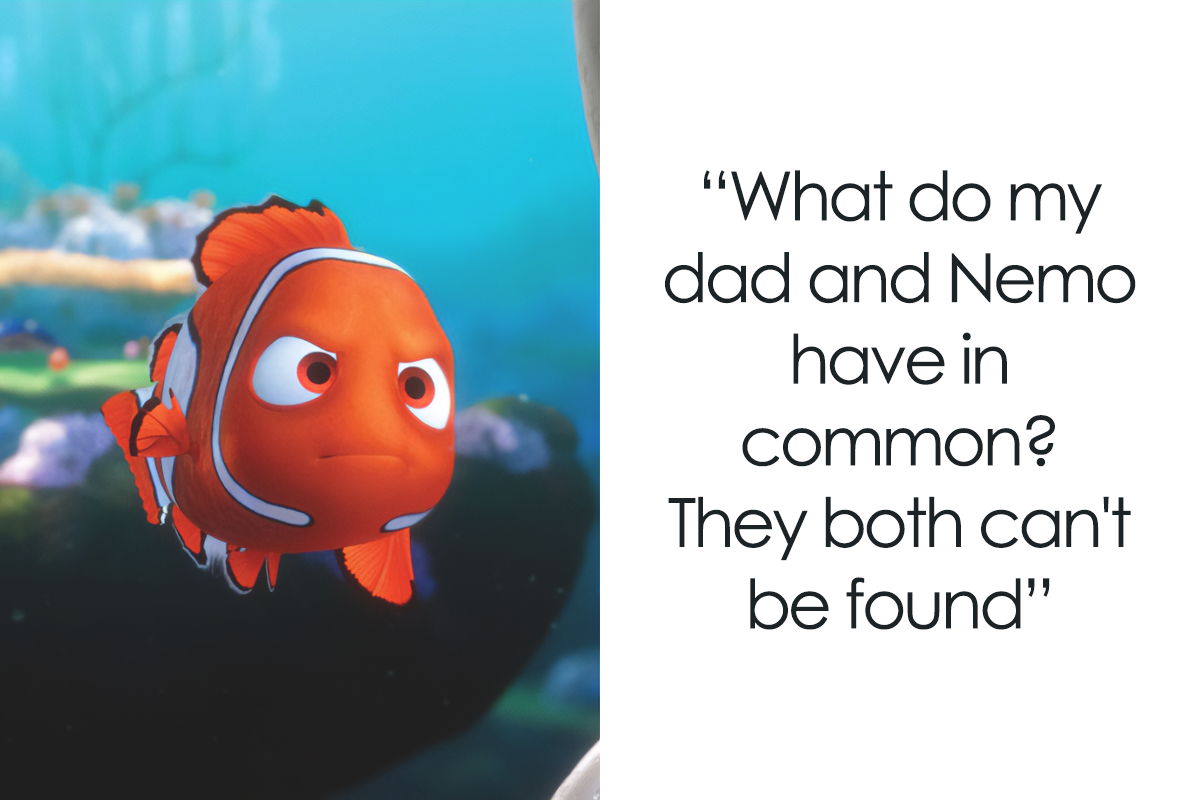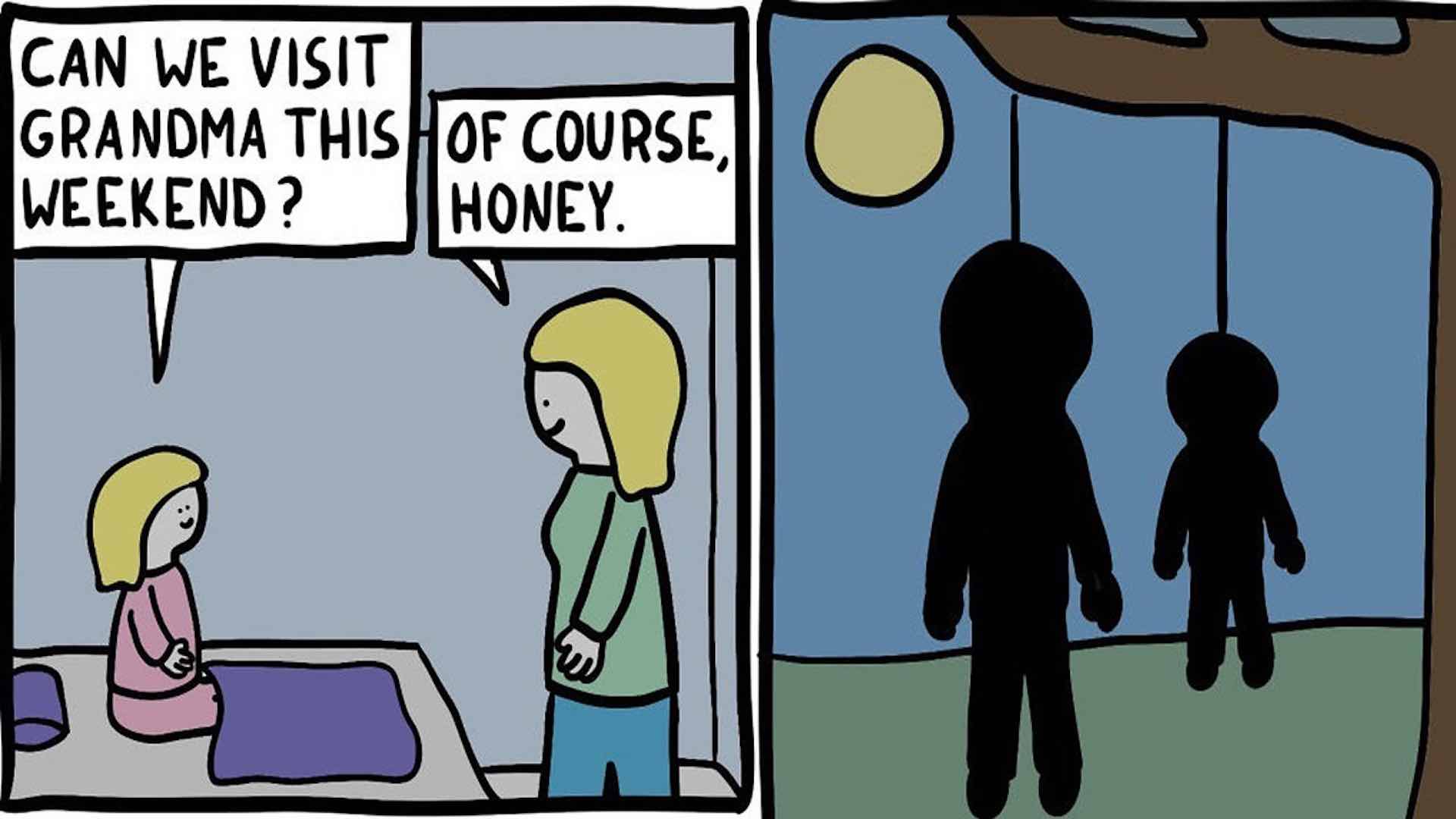Jokes Dark Humor: Unveiling the Art of Inappropriate Laughter
Dark humor, a genre of comedy that delves into the depths of human suffering, absurdity, and the macabre, has gained significant popularity over the years. These jokes often explore uncomfortable topics, challenging societal norms and pushing the boundaries of what is considered acceptable.
The essence of dark humor lies in its ability to provide a cathartic release, allowing individuals to confront and process difficult emotions through laughter. By acknowledging the darkness within ourselves and the world around us, dark humor can foster a sense of acceptance and resilience. Historically, dark humor has served as a coping mechanism during times of adversity, offering a twisted perspective on tragedy and providing solace in the face of despair.
Jokes Dark Humor
Dark humor encompasses several key aspects that contribute to its unique appeal:- Transgression: Jokes often cross societal boundaries, challenging taboos and exploring topics deemed inappropriate for humor.
- Irony and Sarcasm: Dark humor frequently employs irony and sarcasm to highlight the absurdities and contradictions of life.
- Ambiguity: Jokes often leave room for multiple interpretations, allowing individuals to derive their own meaning and connections.
- Catharsis: Dark humor provides a release for pent-up emotions, allowing individuals to laugh at their fears and anxieties.
Jokes Dark Humor and Social Commentary
Jokes often serve as a powerful tool for social commentary. Through humor, comedians can critique societal issues, expose hypocrisy, and challenge prevailing norms. By using laughter to disarm and engage audiences, dark humor can effectively convey serious messages and promote critical thinking.Jokes Dark Humor and Mental Health
Emerging research suggests that dark humor may have therapeutic benefits for mental health. By confronting difficult topics through laughter, individuals can potentially reduce stress, improve mood, and gain a sense of control over their circumstances.Conclusion
Jokes Dark humor is a complex and multifaceted genre of comedy that has captivated audiences for centuries. Through its exploration of taboo topics, use of irony and sarcasm, and cathartic effects, dark humor provides a unique perspective on life and human nature. As it continues to evolve, dark humor will undoubtedly remain a provocative and thought-provoking form of entertainment.Jokes Dark Humor
Jokes dark humor, a genre of comedy that explores dark and often taboo topics, encompasses several key aspects that contribute to its unique appeal and impact:
- Transgressive: Jokes often cross societal boundaries, challenging taboos and exploring topics deemed inappropriate for humor.
- Ironic: Dark humor frequently employs irony to highlight the absurdities and contradictions of life.
- Ambiguous: Jokes often leave room for multiple interpretations, allowing individuals to derive their own meaning and connections.
- Cathartic: Dark humor provides a release for pent-up emotions, allowing individuals to laugh at their fears and anxieties.
- Thought-provoking: Jokes challenge societal norms and prevailing assumptions, encouraging critical thinking and self-reflection.
- Therapeutic: Emerging research suggests that dark humor may have therapeutic benefits for mental health, reducing stress and improving mood.
These key aspects are interconnected and interdependent, working together to create the unique and often provocative nature of dark humor. Through its exploration of taboo topics, use of irony and ambiguity, and cathartic effects, dark humor provides a complex and nuanced perspective on life and human nature.
Transgressive
Transgressive humor, a defining characteristic of dark humor, pushes the boundaries of what is considered acceptable in comedy. It confronts societal norms and explores topics often deemed too sensitive or taboo for public discourse. Through this transgression, dark humor challenges prevailing assumptions and invites audiences to question their own beliefs and values.
One key aspect of transgressive humor is its ability to provoke thought and encourage critical thinking. By exploring controversial or uncomfortable topics, dark jokes can foster discussion and debate, challenging audiences to confront their own biases and preconceptions. This can lead to a deeper understanding of societal issues and a more nuanced perspective on the world.
Moreover, transgressive humor can serve as a form of social commentary, highlighting the absurdities and contradictions within society. By presenting taboo topics in a humorous light, dark jokes can draw attention to important issues and encourage audiences to reflect on their own role in perpetuating or challenging societal norms.
In conclusion, the transgressive nature of dark humor is integral to its ability to challenge societal conventions, provoke thought, and encourage critical thinking. Through its exploration of taboo topics and its willingness to cross boundaries, dark humor provides a unique and often provocative lens through which to examine the human condition.
Ironic
Irony plays a crucial role in dark humor, serving as a powerful tool to expose the absurdities and contradictions inherent in life. Dark humorists use irony to create a humorous distance from the harsh realities of life, allowing audiences to laugh at the often-painful truths that surround them.
One key aspect of irony in dark humor is its ability to highlight the gap between expectation and reality. By presenting situations or outcomes that are incongruous with what is expected, dark humor challenges our assumptions and forces us to confront the often-absurd nature of life. This can lead to a heightened awareness of the complexities and contradictions that exist within our world.
Moreover, irony in dark humor can be used to critique societal norms and values. By presenting these norms in an ironic light, dark humorists can expose their flaws and inconsistencies. This can lead to a deeper understanding of the social and cultural forces that shape our lives and encourage us to challenge the status quo.
In conclusion, the use of irony in dark humor is essential for its ability to highlight the absurdities and contradictions of life. Through its ironic lens, dark humor provides a unique and often provocative perspective on the human condition, challenging our assumptions and encouraging us to reflect on the complexities of the world around us.
Ambiguous
Ambiguity is a defining characteristic of dark humor, contributing significantly to its unique appeal and impact. Dark jokes often employ multiple layers of meaning and open-ended punchlines, inviting audiences to actively engage with the material and derive their own interpretations.
- Subjective Interpretation: Dark humor allows for a highly subjective interpretation, as individuals draw upon their own experiences, beliefs, and perspectives to make sense of the jokes. This subjectivity fosters a sense of personal connection and can lead to diverse interpretations among different audience members.
- Contextual Dependency: The meaning of dark jokes can be heavily influenced by the context in which they are presented. Cultural references, social norms, and current events can shape how audiences perceive and interpret the humor. This contextual dependency adds depth and complexity to dark jokes, as they can take on different meanings in different settings.
- Emotional Ambivalence: Dark humor often evokes a mix of emotions, including laughter, discomfort, and reflection. The ambiguity of the jokes allows individuals to navigate these emotions simultaneously, creating a unique and thought-provoking experience. This emotional ambivalence can be cathartic, providing a release for complex and often conflicting feelings.
- Intellectual Stimulation: The ambiguity of dark humor challenges audiences intellectually, encouraging them to think critically and engage with the material on a deeper level. By requiring active interpretation, dark jokes foster cognitive engagement and can stimulate discussion and debate among audience members.
In conclusion, the ambiguity of dark humor is a key factor in its ability to evoke laughter, provoke thought, and create a sense of connection among audiences. Through multiple layers of meaning, contextual dependency, emotional ambivalence, and intellectual stimulation, dark humor invites individuals to actively participate in the comedic experience and derive their own unique interpretations.
Cathartic
The cathartic nature of dark humor lies in its ability to provide a safe and humorous outlet for individuals to confront and process difficult emotions. By exploring and acknowledging the darker aspects of life, dark humor allows individuals to release pent-up emotions such as fear, anxiety, and grief through laughter.
One key aspect of the cathartic effect of dark humor is its ability to challenge societal norms and taboos. By confronting sensitive or uncomfortable topics, dark humor creates a space where individuals can acknowledge and express emotions that may otherwise be suppressed or deemed inappropriate. This can lead to a sense of liberation and empowerment, as individuals realize that they are not alone in their struggles and that it is possible to find humor even in the darkest of times.
Moreover, dark humor can serve as a coping mechanism for individuals dealing with personal challenges or traumatic experiences. By providing a humorous perspective on difficult situations, dark humor can help individuals to distance themselves from their pain and gain a sense of control over their circumstances. This can lead to improved mental health and well-being, as individuals are able to process and release their emotions in a healthy and constructive manner.
In conclusion, the cathartic nature of dark humor is a significant aspect of its appeal and therapeutic value. By providing a safe and humorous outlet for individuals to confront and process difficult emotions, dark humor can contribute to improved mental health and well-being, while also challenging societal norms and promoting a sense of liberation and empowerment.
Thought-provoking
Dark humor is often characterized by its thought-provoking nature, challenging societal norms and prevailing assumptions to encourage critical thinking and self-reflection. This aspect is deeply intertwined with the essence of dark humor, as it utilizes unconventional and often taboo topics to provoke laughter and introspection.
By confronting sensitive or controversial issues, dark humor forces individuals to confront their own beliefs, biases, and perceptions. It encourages them to question the status quo, examine their own values, and consider alternative perspectives. This process of critical thinking can lead to a deeper understanding of societal structures, power dynamics, and human nature.
Moreover, dark humor can serve as a catalyst for self-reflection, as it prompts individuals to examine their own reactions and emotions to challenging topics. Through laughter, dark humor allows individuals to distance themselves from their preconceptions and gain a fresh perspective on their own thoughts and feelings. This can lead to increased self-awareness, empathy, and a more nuanced understanding of the complexities of human behavior.
In conclusion, the thought-provoking nature of dark humor is a significant aspect of its appeal and impact. By challenging societal norms, encouraging critical thinking, and promoting self-reflection, dark humor contributes to a deeper understanding of the world around us and our place within it.
Therapeutic
Recent studies have explored the potential therapeutic effects of dark humor on mental well-being. Researchers have found that engaging with dark humor may provide several benefits, including stress reduction and mood improvement.
One key mechanism through which dark humor exerts its therapeutic effects is by challenging negative emotions and reframing stressful situations. By confronting difficult topics and finding humor in them, individuals can gain a sense of control over their circumstances and reduce feelings of anxiety and helplessness.
Moreover, dark humor can foster resilience and coping skills. By exposing individuals to difficult or taboo topics in a humorous context, dark humor allows them to process and integrate these experiences in a healthier way. This can lead to increased emotional resilience and a greater ability to cope with adversity.
In conclusion, emerging research suggests that dark humor may have therapeutic benefits for mental health, reducing stress and improving mood. By challenging negative emotions, reframing stressful situations, and fostering resilience, dark humor can contribute to overall well-being.
Frequently Asked Questions about Jokes Dark Humor
This section addresses common questions and misconceptions surrounding jokes dark humor, providing informative answers to enhance understanding.
Question 1: Is dark humor appropriate for all audiences?
Answer: Dark humor may not be suitable for all audiences due to its potentially offensive or disturbing content. It is important to consider the context, setting, and audience when using dark humor to avoid causing discomfort or harm.
Question 2: Can dark humor be harmful?
Answer: While dark humor can provide therapeutic benefits, it is important to use it responsibly. Excessive or inappropriate use of dark humor can perpetuate negative stereotypes, desensitize individuals to serious issues, or create a hostile environment.
Summary: Understanding the nature and potential impact of dark humor is essential for its appropriate use. By considering audience sensitivity, context, and ethical implications, individuals can engage with dark humor in a responsible and meaningful way.
Conclusion
Jokes dark humor, with its exploration of taboo topics, use of irony and ambiguity, and potential for catharsis and social commentary, has a profound impact on our understanding of humor and its role in society. By delving into the darker aspects of life, dark humor challenges societal norms, encourages critical thinking, and provides a unique lens through which to process difficult emotions.
As we continue to engage with dark humor, it is important to consider its ethical implications and ensure its responsible use. By fostering a deeper understanding of this complex genre, we can harness its potential for therapeutic benefits, promote open dialogue, and ultimately contribute to a more nuanced and inclusive society.


